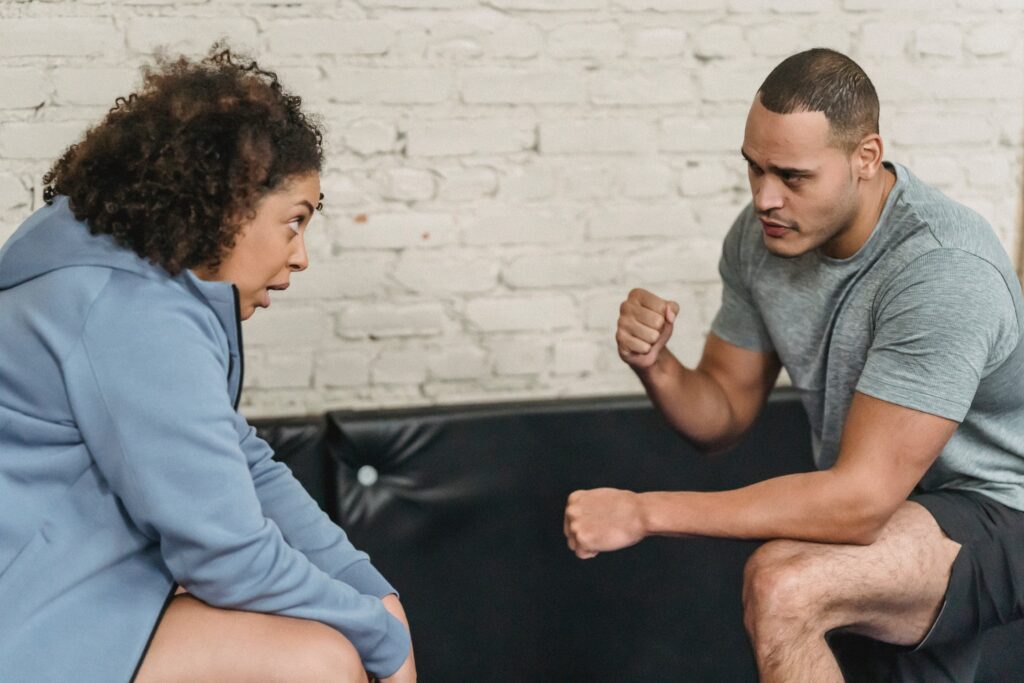
On Her Own is very much about self-protection and the universal pursuit of safety and security, whatever that means to an individual. I believe strongly that we women have the agency and ability to defend ourselves. We might need support believing that we are worthy of protection in our most secret thoughts, and we will certainly need assistance with learning and practicing the skills and tools of self-defense. If we haven’t arrived there yet, though, or even if we have, well-meaning people in our lives may decide we need their help. This most often takes the form of unsolicited advice or gifts of equipment or training. Sometimes, their efforts are welcomed. Time, money, and resources can be tight, not to mention how another’s faith in us can give us that little extra psychological bump we need to accomplish a goal. Sometimes, not so much. Today, I’d like to speak to both sides of this sometimes contentious situation.
For the helpers: we appreciate you. We know that you’re trying to show how much you care about us, by doing what you can so that we can remain safe even when you aren’t right there to protect us. However. You are not us. No matter how well you know us, we may be keeping private our own, personal reasons why we aren’t willing to take the measures you’d like us to, reasons we might not even be able to articulate to ourselves or to you. Perhaps with patience and the right questions, we’ll share them. Or we may not, and that is our right. Even though you may be all in on the use of lethal force to protect your own life and the lives of those you love, not everybody shares that same feeling for reasons ranging from a lack of belief in one’s self-worth to a deep belief in the sanctity of preserving all life at any cost to one’s own to a doubt in one’s ability to safely harness the power of a gun or knife without risking injury to an innocent. They are all good reasons, even if you don’t understand or agree. While you may find value in dedicating yourself to learning how to shoot and fight, and to sacrificing certain areas of your life to avoid potential dangers, we may have other priorities. You cannot decide for us what we should put first in our lives, even if you wish it were something else. All of those decisions must be ours.
For the helped: I see you. I know what it is like to feel the pressure of someone trying, with the best of intentions, to change our lives and even our most core beliefs about ourselves and how we should conduct ourselves. I know what it is like to want, desperately, to go along and please them, but to also want, desperately, to be left alone because it’s not a right time to change who and what we are, whether because we’re satisfied or overwhelmed or busy or scared or something in between. Maybe the helper is someone who we have not granted the right to try to interfere with our lives in this way, or maybe we have some quiet history or hidden trauma that makes us unwilling to take the steps they’d like us to. Maybe we’re still working on the simpler, daily forms of boundary-drawing and self-care because we’re not yet ready for the radical steps of taking physical, even deadly, steps to do so on a larger, more consequential scale. Or we’re enjoying skill-building in isolation and aren’t yet ready to make an entire lifestyle change to incorporate it into our everyday. It’s all so very individual, and it’s natural and normal to have your very own conception of what is and isn’t worth the time, energy, and attention for you, and to pick and choose among the various options when it makes sense for you. Ultimately, you need to be authentic to your true self.
We change because of the people we are surrounded by, especially when they are people we respect and care about. Part of that is the willingness to listen and be open to their points of view because they have earned the benefit of our doubt. Even if we might not believe them initially, we might be willing to hear them out, to try what they suggest because they’ve had good ideas before, to step back from a belief because they give us good reason to rethink. It’s always a risk, though, no matter how much we trust that person. Whichever side of helping we are, it’s important that we assume good faith on the part of the other. When we do that, we become more capable of having real conversations, real exchanges that allow each side to share their motivations and reservations, and perhaps find an understanding or a middle ground. In many cases, what will become apparent is that we are on different points in our journeys of self-defense. We aren’t moving at the same pace, and that’s okay. While inside a partnership, it may be necessary to find a way to balance two perspectives and compromise in certain areas like deciding together places that are and aren’t safe to go, it’s not necessary to match up – or match up yet – some larger, more personal decisions like each person carrying a gun.
As a more concrete example, I have more than once myself provided or been part of providing a reluctant partner with shooting lessons, gun, holster, and concealed carry advice. And the best successes were when the giver gave without expectation and the receiver learned without obligation, whether that resulted in a new gun toter that day or a few months or years later, or simply someone who now had a better understanding of something important to their partner. That outcome relies on helpers giving time, space, and opportunity. A class, the resources needed to go get some learning or practice in, backing off and letting a loved one work through what they need to get to where they’re going, and non-judgment for wherever they land. You, as the giver, cannot force someone to come around to your way of thinking and living. It also relies on you, the person being helped, remembering that the motives may be pure for the person who is showering unwanted advice and gear on you, but you still do not owe a specific conclusion. Taking advantage of what you are given is, I think, a way of fully exploring that point of view and having the knowledge to be clear that a way is not for you, or not for you yet. It’s also a way of expanding your own world so that you know more than you did. Be willing to try, and see if you might surprise yourself, but also be willing to say no or not yet after all that. After all, nobody is required to live with you except you.





